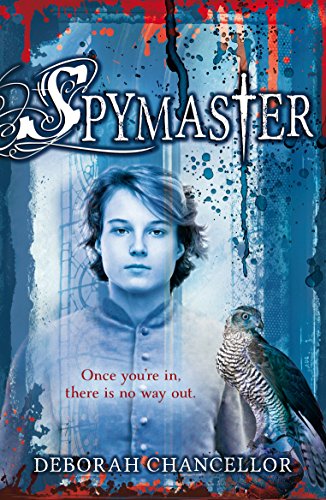Spymaster
When fourteen-year old Kit, grieving after his falconer father’s death, deliberately frees his employer’s favourite hawk, he knows he could hang like a common criminal. His father’s employer was Queen Elizabeth I’s spymaster, Sir Francis Walsingham. Best, then, to accept Walsingham’s unexpected offer. Walsingham tells Kit that he will forget his crime if he agrees to work for him.
What follows is a tension-driven journey into the world of espionage seen through the eyes of a London lad. When he meets the code-breaker Phelippes and becomes a courier between Queen Mary, a double agent and Walsingham, Kit cannot escape his own fate and is as trapped as the hawk he released – which returned to Walsingham after being freed.
Chancellor shows how the unfolding of the Babington Plot involves Kit in the brutality of the period and, without too much blood and gore, keeps to a more matter-of-fact account, showing Kit, after witnessing the public executions that follow, longing to escape. Without overwriting, she lets us see his reluctance at having to return to Walsingham. The climax of horror is reached with Mary’s execution at Fotheringhay. Chancellor does not wallow in the horror but manages to describe the somewhat farcical event with tact. After the spymaster’s melancholy death and with his own life then in jeopardy Kit’s two true friends who have been lightly sketched in come to the fore in a credible denouement.
Gripping and more historically accurate than some of the Tudor fantasies currently on offer, it illustrates clearly the savagery of public life and the moral dilemmas facing one well-meaning boy in a time of religious turmoil. Chancellor’s succinct descriptions bring Tudor London to life with vivid period detail to ratchet up the mood of menace. Highly recommended for 12+.










